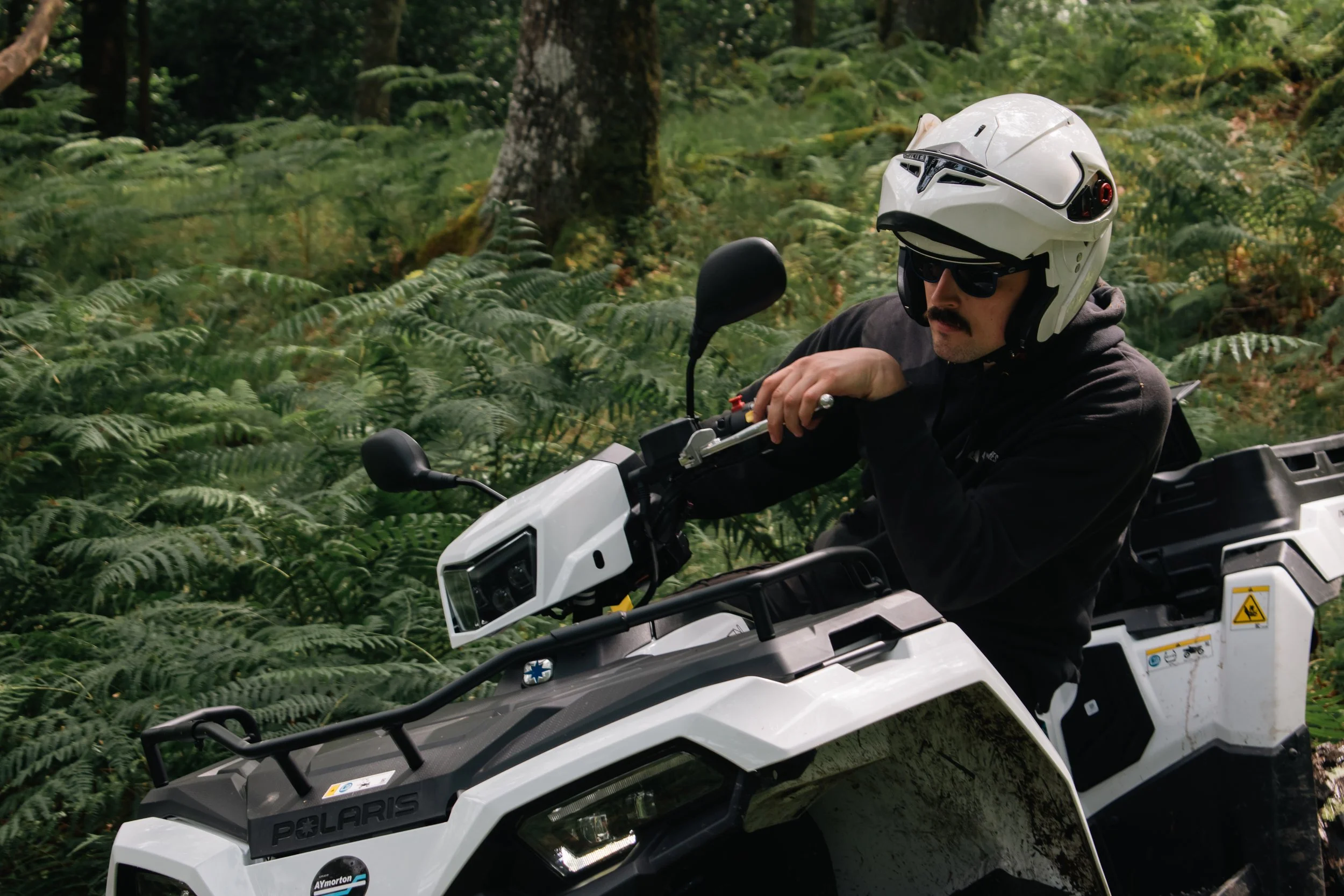
OFF ROAD ATV TRAINING
STANDARD LEVEL
Our BORDA (British Off Road Driving Association) accredited ATV training courses provide certificated, hands-on instruction in safe off road riding techniques, 4x4 systems, and risk management — ensuring ATV operators stay safe and employers stay compliant.
The Standard Level BORDA ATV training course is our most popular option and the course we recommend for those operating ATVs on varied off road terrain, including moderate slopes and conditions with mixed traction.
Unmaintained hill & forest tracks
Remote project & field work such as ecology surveys
Moorland & upland, common across utilities & renewables
Coastal, beach & inland waterways
Moderate inclines & declines, up to 25 degrees
Terrain with mixed traction such as grass, mud, loose rock, sand & shingle
Suitable for both private and commercial operators, with training delivered to British Off Road Driving Association (BORDA) standards as recommended by the Health & Safety Executive (HSE).

What the course covers
Operator safety and environmental considerations
ATV controls and transmission types
Pre-use and post-use checks
Starting and stopping with reduced traction
Emergency stop procedures
Moderate, ascents, descents & side slopes
Route planning and risk assessment for varied terrain
TRAINING OUTCOMES
On successful completion of this course, participants will be able to:
Understand safety and legal requirements for ATV use
Carry out daily checks and confirm machines are safe to operate
Understand drive types, gearboxes, differentials, and rider aids — applying the right systems when required
Plan off-road routes that account for terrain & machine limitations
Operate ATVs safely and confidently in varied terrain, forwards and in reverse, including with limited traction
Apply correct techniques for ascents, descents, ruts, ditches, side slopes, and obstacles
Understand shallow wading
Demonstrate self-recovery techniques (e.g. after loss of traction)
Recognise how to reduce wear & tear and avoid damage
Understand how to minimise ground impact
Delivery
Training can be delivered at your site (if suitable) or at our dedicated training centre in West Dunbartonshire.
VEHICLES & EQUIPMENT
We recommend trainees use the ATV vehicle they normally operate at work to ensure best understanding of their vehicle’s systems and capability, if this isn’t possible then courses can also be undertaken in one of our Can Am Outlander ATVs.
All trainees should come dressed for the outdoors, with warm and waterproof layers, sturdy footwear and a well fitting helmet (we can provide helmets if required).
DURATION: FULL DAY
TERRAIN: MODERATE
PRICE: FROM £579 + VAT
ATV COURSE COMPARISON
BASIC LEVEL ATV
DURATION: 1/2 Day
COST: FROM £499 + VAT
TERRAIN: MILD
Maintained forrest tracks
Unpaved worksites and access roads
Agricultural land and private estates
Mild slopes up to 15 degrees
Terrain with reasonable traction, such as gravel & rock
STANDARD LEVEl ATV
DURATION: FULL Day
COST: FROM £579 + VAT
TERRAIN: MODERATE
Unmaintained hill and forest tracks
Quarries, remote construction & work sites
Moorland & upland, common across utilities & renewables
Costal, beach & inland waterways
Moderate slopes up to 25 degrees
Terrain with mixed traction such as grass, sand, gravel or shingle
higher leveL ATV
DURATION: 2 DAYS
COST: FROM £999 + VAT
TERRAIN: CHALLENGING
Steep, technical, mountainous terrain
Soft or boggy sites, such as wetland
Steep inclines and declines above 25 degrees
Terrain with limited traction such as sand, mud, snow & ice
Operating with loads, trailers or during darkness
Conditions beyond the vehicles limits, which must be avoided
Situations where self-recovery may be required

Have a question or need more information?
Get in touch below and our expert team will be glad to assist.







